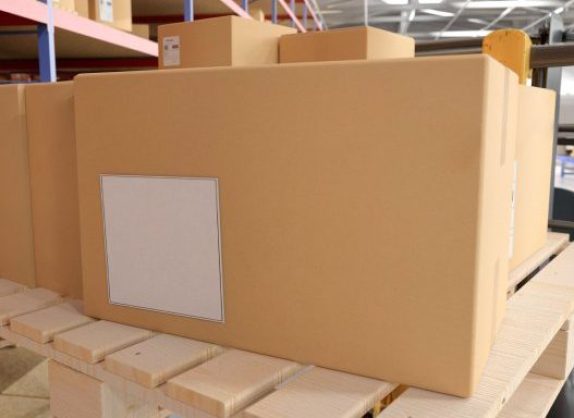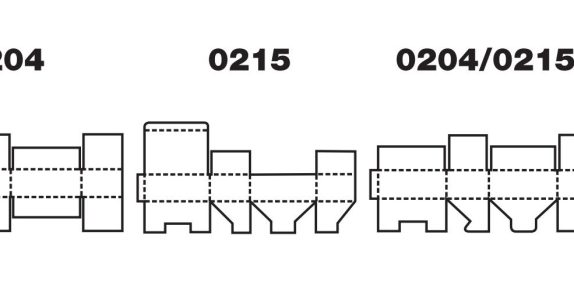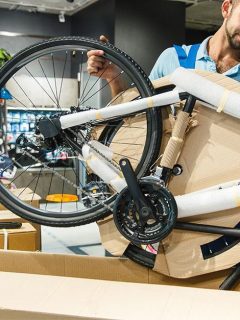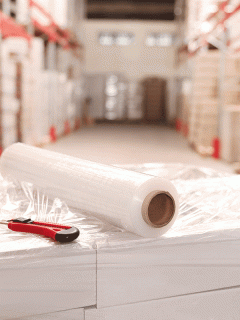We’ve all been there, waiting impatiently for our parcel, but it never arrives. And the reason for this is as banal as it is easily avoidable: an illegible or incorrectly filled in address label. It happens more often than you think, but it really doesn’t have to be that way. The basic prerequisite for safe and fast delivery is therefore correct addressing, ideally with the help of mailing labels or stickers. 3.4 billion items successfully reached their addressees in 2017 using this principle. With this figure, Germany remains number one in the European parcel market – according to the Pitney Bowes Parcel Shipping Index. Consequently, there are 41 parcels and small packages for every inhabitant between Flensburg and Berchtesgaden, or 108 per second. Growth driver number one: online shopping.
It is therefore all the more important to fill in the address data correctly and legibly and to label the parcel correctly. Parcel service providers usually sort the items by machine, with the exception of bulky items. If the machine does not recognise the writing, an employee tries his luck. Of course, this takes time. In the best case, this merely delays the shipment; in the worst case, the package goes back to the sender.[/su_heading]
Shipping labels are the easiest
The labelling of parcels is also related to the destination country; in any case, the recipient must be indicated with the current name, the address and, if necessary, other shipping details.
Stickers or shipping labels are best suited for this. This is because they specify exactly what information is needed for the shipment. Free shipping labels are available at most post offices, at least at DHL:
Print letters should ideally be used for machine readability. The label is then affixed as straight as possible to the top of the parcel. Alternatively, parcels can also be labelled online, as every transport service provider offers shipping labels for printing:
This has the advantage that franking is done in the same step based on the dimensions and weight. Another very convenient option is to book a collection day. The parcel does not have to be brought to the branch, but is collected on the desired date.
Labelling parcels without printer and sticker
Parcels can of course still be labelled without labels and by hand. To do this, the sender’s address is entered in the top left corner: The address is not mandatory, but if the parcel cannot be delivered, there is no return address. As with the classic letter, the recipient’s address is placed at the bottom right. It is important to keep a certain distance from the edge of the box: a few centimetres should be left free when labelling the parcel.
Mobile parcel labels
The major parcel services now also offer so-called mobile parcel labels, such as Hermes. With this service, the shipping labels can be easily ordered online, but the difference to creating a shipping label online is the further procedure: No in-house printer is necessary. At the branch, the parcels are completed with the help of a QR code.Special marking
To ensure that shipped products reach their destination without damage, it is primarily a matter of choosing the right packaging. The handling of the goods during transport also plays an important role. If fragile items are shipped, the packaging must be marked accordingly for the forwarder. In addition, dangerous goods, electrostatically sensitive components, perishable consignments, heat-sensitive or moisture-sensitive goods should be provided with warning labels.There are helpful indicators that can be easily attached to the package to check for proper handling during transport:
 Cold Mark
Cold Mark WarmMark
WarmMarkShipment tracking for parcels
The consignment number can be used to find out where the order is or whether the parcel has already reached the recipient. Shipped parcels can be tracked online via the respective consignment number.
If, contrary to expectations, you are not at home, you can change the delivery with some providers under the heading “Requested delivery”. After entering the postcode, DHL even gives the name of the neighbour if the parcel was received there.
Conclusion
When sending a parcel, it is crucial to label it correctly. There are now many ways to label your parcel. The safest way is to use ready-made shipping labels or online forms. This helps to avoid mistakes and costs, especially when sending parcels abroad.If sensitive products such as fragile items, electronic goods, dangerous goods or products sensitive to heat or cold are being sent on the journey, the consignments should be labelled with the appropriate information. In this way, the forwarder shows due care in handling the consignment. In addition, it is possible to prove transport damage using various indicators. Thus, not only can the location and status of the parcel be traced on the basis of the consignment number, but also the proper handling of the parcel.

















